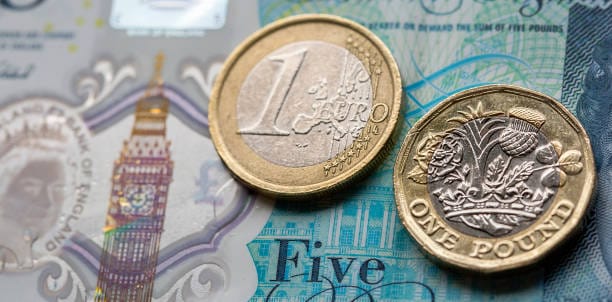GBP/EUR exchange rate week review: pound edges higher versus euro
25/11/2024 to 29/11/2024: The pound euro exchange (GBP/EUR) exchange rate drifted higher amid a data-light week in the UK.

Monday
The pound euro (GBP/EUR) exchange rate struggled to garner investor attention, despite remarks from Bank of England (BoE) Deputy Governor Clare Lombardelli cautioning that the battle against inflation isn’t over.
Donald Trump announced Scott Bessent as his Treasury Secretary nomination, allaying concerns about the potential impact of US tariffs on the Eurozone economy. This dented the safe haven dollar amid a risk-on market mood, causing the euro to firm due to its negative trading correlation with the US currency – with the pound subsequently falling to €1.964.
Tuesday
General market volatility left the pound euro exchange rate choppy.
A larger-than-expected drop in UK retail sales volumes was largely brushed off by investors following the release of the Confederation of British Industry’s (CBI) latest distributive trades survey.
Confirmation of Donald Trump’s tariff plans revealed that the Eurozone would not be subject to a hefty import levy from its largest trading partner, supporting the single currency.
Wednesday
The pound euro exchange rate treaded water a whisker below €1.20.
A data lull in the UK meant the German Gfk Consumer Climate Indicator was the only notable release. The forward-looking survey showed declining consumer morale for December as Germans prepare to tighten their purse strings.
Contact a currency specialist to discover how they can help you take control of exchange rates
Thursday
The pound crept above the €1.20 benchmark, with investors unfazed by a marginal decline in UK consumer confidence reported by the British Retail Consortium (BRC).
The euro was pressured slightly by a smaller-than-expected rise in German inflation, which rebounded above the European Central Bank’s (ECB) 2% target in November, emphasising the uneven path downward for consumer prices.
Consumer prices in the Eurozone’s largest economy were 2.2% higher than a year earlier, up from 2% the previous month. This represented a second-straight monthly increase in the annual rate and was a fraction cooler than economists’ expectations of 2.3%.
Friday
The pound maintained its upward momentum, finding further support from the BoE’s latest Financial Stability Report. Speaking at a press conference following its release, Governor Andrew Bailey warned that higher trade barriers could damage global growth and stoke uncertainty about inflation, potentially causing volatility in financial markets and increasing borrowing costs – a hawkish outlook that lifted the UK currency.
The pound’s gains were capped by an acceleration in Eurozone inflation in November. As expected, consumer prices in the bloc rose to 2.3%, exceeding the ECB’s 2% target for the first time in three months – but it isn’t expected to stop central bank rate-setters from cutting interest rates in December.
The pound euro rate ended the week at around €1.203.
Looking ahead
With influential macroeconomic data from the UK economy thin on the ground next week, figures from the Eurozone will be in sharp focus for investors. Notably the GDP reading for the third quarter on Friday, which is expected to confirm the bloc’s economy expanded by 0.4%, marking a 0.9% increase on an annual basis. If realised, these figures will signal resilience in the Eurozone’s economy, especially after a slower second quarter, bolstering the euro.
